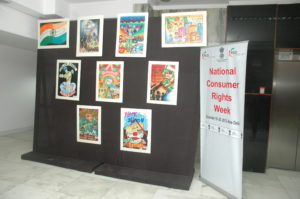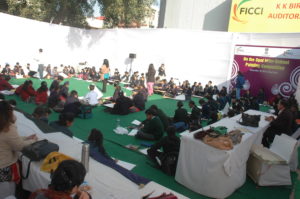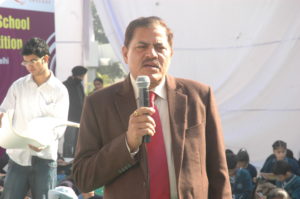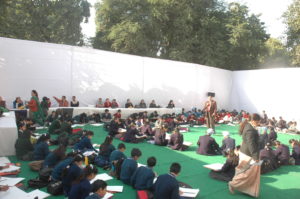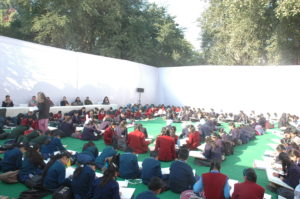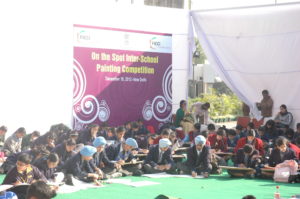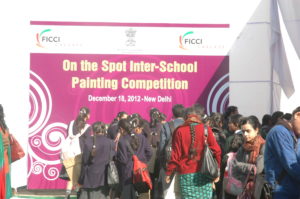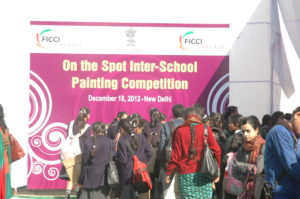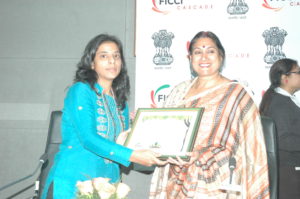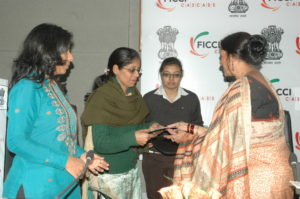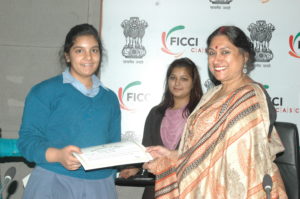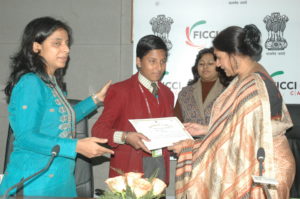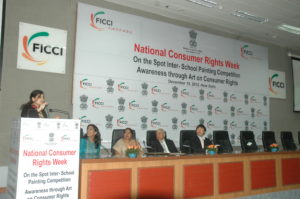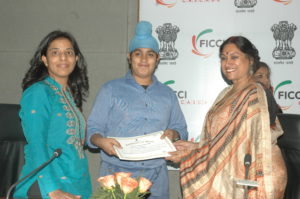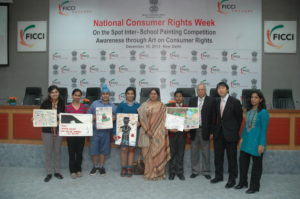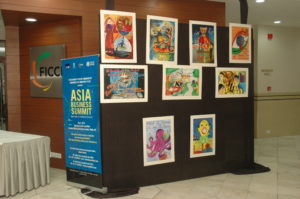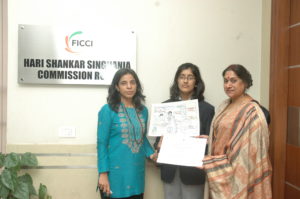Counterfeit goods easily available, but not always easy to spot
As the world has grown smaller, more and more foreign-made goods are hitting our shores. Among them, a flood of fakes, fueled in part by the Internet and the ease with which we can buy products directly.
Last year, US law enforcement agencies shut down nearly 30,000 websites that were illegally selling counterfeit merchandise online. Not only do fakes cost US businesses as much as $250 billion in lost trade annually, but many are also downright dangerous.
Lear More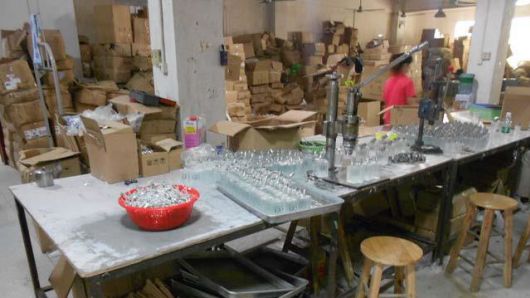
You’ll never guess what’s in these fake cosmetics!
Human urine, cyanide and rats’ droppings are just a handful of poisonous ingredients found in fake beauty products hitting the U.K., according to findings announced by the City of London Police.
It is estimated by the police that consumers in the U.K. spend at least £90 million ($141 million) each year on fake cosmetics, and this total is expected to rise dramatically as consumers shift more towards online shopping.
http://www.cnbc.com/id/102687332
Lear More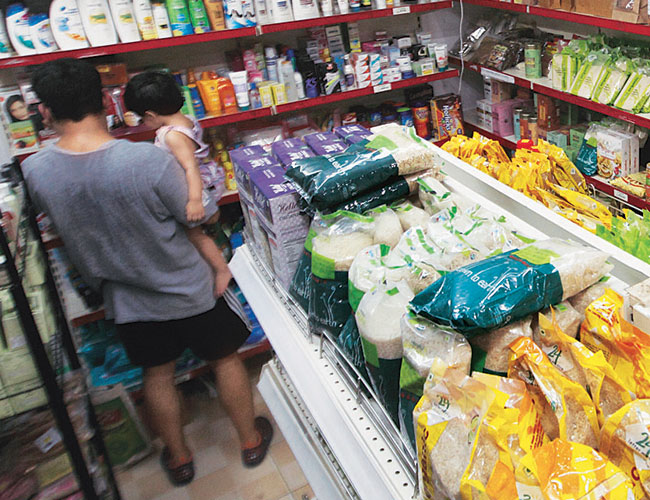
Fake organic brands thrive under FSSAI
The Food Safety and Standards Authority of India (FSSAI) has been issued a legal notice by the Crop Care Federation of India (CCFI) for issuing the ‘organic’ certificate and logo to companies caught cheating consumers. The federation, in its notice on January 3 , has blamed the food authority for letting “fake, wrongly labelled and misbranded organic products” deceive millions of consumers in India.
http://indiatoday.intoday.in/story/fake-organic-brands-thrive-under-fssai/1/413520.html
Lear MoreNigeria Loses About N15bn Annually To Counterfeit Products – SON
An estimated N15 billion is lost annually to fake or counterfeit products in terms of tax revenue to the government, income to local manufacturers and employment generation to Nigerians.
The director, Legal Services, Standards Organisation of Nigeria (SON), Suleiman Kawo, dropped this hint when the agency hosted the staff and management of the Nigeria Institute of Policy and Strategic Studies (NIPSS), Kuru, who came on a study tour of the agency in Abuja.
Lear More
Tobacco worth $24,000 stolen in Windham
WINDHAM – A young Windham-area family took a hit in the pocketbook this week when thieves cut a large hole in a pack barn and made off with 14 large bales of cured tobacco.
Each bale weighs 750 pounds. Total value of the theft is estimated at $24,000. Dan Fernandes and partner Kendle Columbus of Windham Road 6 were not insured. “I never thought in a million years that this would happen,” Fernandes said Thursday. “When I saw this my heart just sank.” The theft occurred in the early morning hours of Wednesday. Whoever did the crime was well-organized and brazen. The thieves drove several vehicles up to the rear of the pack barn, cut a large hole in the back of it, and made off with a large amount of tobacco. Fernandes, 30, was not insured. With his pack barn being less than 100 feet from his home, Fernandes didn’t think anyone would attempt an incursion like this. Fernandes was so confident about his situation that he decided this year not to pay the $700 premium to insure the contents of his pack barn. “Our offshore workers saw this and they were so upset,” said Columbus. “This was their hard work too. They had tears in their eyes. They asked ‘What kind of country is this?’” Const. Ed Sanchuk of the Norfolk OPP says a crew of six would have been capable of hoisting the bales onto a truck. He suspects the tobacco has been shipped to a blackmarket producer of contraband cigarettes.
Sanchuk noted this was the third theft of its kind in the tobacco belt in recent weeks. He said farmers and their neighbours need to band together and look out for suspicious activity on each other’s property. The OPP are interested in hearing reports of strangers snooping around farmyards or who come onto properties claiming to look for someone they believe lives in the area. Sanchuk said vehicle descriptions and licence numbers should be noted under these circumstances and passed along to police right away. Fred Neukamm of Aylmer, chair of the Ontario Flue-Cured Tobacco Growers Marketing Board, said growers should seek advice from the OPP if they have doubts about the security of their buildings. Neukamm added that growers should not confront the situation if they believe they have come upon a theft in progress. “Personal and family safety comes first,” Neukamm said. “The most appropriate advice is to phone 911 and ask for the police immediately.”
http://www.tillsonburgnews.
Bulgarian customs officers find fake perfumes worth over EUR 1 million, heroin worth over BGN 1 million
Svilengrad. Bulgarian customs officers at Svilengrad checkpoint have found fake perfumes worth over EUR 1 million and heroin worth over BGN 1 million in a container with empty jars, announced the National Customs Agency.The fake goods and drug were transported on rails from Turkey to Western Europe. According to its papers the container was transporting 22 pallets with empty jars from a company in Turkey to a company in the Netherlands. However, the ultimate unloading point was said to be a town in Germany. The discrepancy made the customs officers suspicious and they checked the container. Pallets with empty jars were hiding pallets covered with empty cardboard boxes to imitate a similar height. The customs officers found 18 pallets with a total of 30,000 packages of perfume and toilet water imitating 30 world famous trademarks, such as Boss, Chanel, Gucci, Dolce and Gabbana, Givenchy, Armani and Calvin Klein. They are estimated at EUR 1 million. This is the biggest amount of fake perfumes the customs officers have seized in the recent years.They also discovered that the cardboard perfume packages in two of the cardboard boxes contained plastic envelopes with a powder-like substance which tested positive for heroin. The drug weighs 8,5 kg in total and is worth over BGN 1 million.An investigating customs inspector is working on the case under the supervision of Haskovo District Prosecutor’s Office.
Lear More“Awareness through Art”,On the Spot Painting Competition on Consumer Rights, New Delhi
18/12/2012 | New Delhi
The National Consumer Week was flagged off with the “Awareness through Art” over 272 students participated from various schools of NCR Delhi in the Painting Competition on Consumer Rights.The competition focused on the detrimental effects of smuggled, counterfeit and fake goods on the health and safety of consumers, with specific topics like, “Say no to Fakes”, and “Does Black Money encourage crime in society?” The paintings by the students also brought to fore the steps, which can be taken by consumers to avoid being duped into purchasing these fake products, with topics like “Buying a product without receipt—Sensible or Dangerous” and “Be responsible: Insist on a bill”. The paintings by the students also brought to fore the steps, which can be taken by consumers to avoid being duped into purchasing these fake products. All the participating students were awarded certificates. Cash prizes were awrded to the 1st, 2nd and 3rd prize winners by Smt. Renu Agrawala.
Lear MoreUganda pushes fake phones switch off deadline to next year
The Uganda Communications Commission (UCC) has back-tracked on an earlier commitment to block fake cellphones from accessing any network this year. However, the commission did not give any new date for a switch off, but the Daily Monitor said it understood this would happen in the later part of next year. Recently, UCC announced it would beginning November make it impossible for all fake mobile phones from accessing any network in the country. “The exercise to block fake phones is ongoing; however, the actual switch off will be effected late next year,” Mr Godfrey Mutabazi, the UCC executive director, told the Daily Monitor on phone. “We have established a database to identify all fake phones and we are now working to make the database bigger. The data base will have an automatic number and code which one can use to know whether his phone is authentic or not,” he said. The shift comes after a number of industry players said the deadline was too ambitious and could be hard to achieve. Mr Mutabazi said: “We shall engage all stakeholders and decide on the switch off deadline. We are committed to implementing this,” adding that “the shift was informed by the need to give stakeholders sufficient time to prepare for the exercise. In neighbouring Kenya, the Communications Commission of Kenya took more than two years to prepare the public before it it in September begun blocking fake mobile phones. Recently, Mr Eric Yang, the Huawei Uganda managing director, told the Monitor that while the move was a step in the right direction; its implementation would be hard to achieve in such a short period of time. A fake phone is one whose International Mobile Equivalent Identity (IMEI) – serial number signature imprinted on the inside of the battery compartment – cannot be recognised by data bases of genuine mobile phone manufacturers. The move seeks to protect subscribers from counterfeits but most importantly, to safeguard genuine firms from copycats. There has been an upsurge in the influx of fake mobile handsets in Uganda in the past months during Kenya’s build up to and the actual deactivation of SIM cards carried in fake mobile handsets. A recent survey found that 30 per cent of mobile phones used in Uganda were fake.
Lear More



